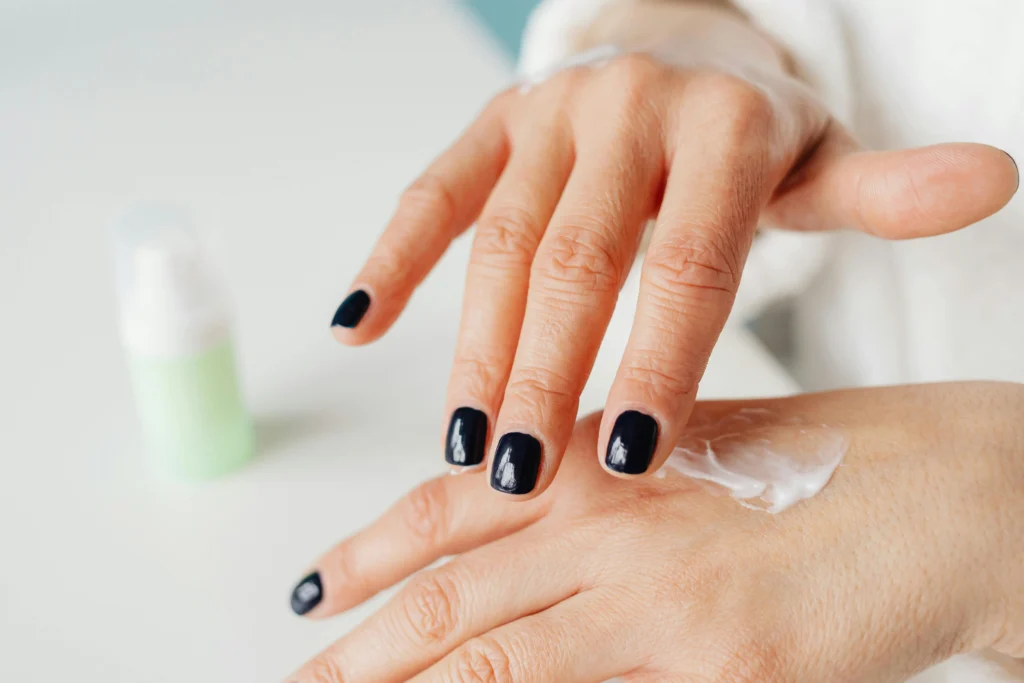Navigating the tricky terrain Teen Body Confidence can be challenging with the added pressure of body image concerns. Teen body confidence is crucial for developing a healthy self-image and leads to empowerment and self-love. This guide aims to offer actionable steps for teens and their parents to foster an environment where body positivity thrives.
Introduction
The teenage years are a formative period where body confidence can be significantly affected by peers, media, and societal expectations. A positive body image goes beyond mere acceptance—it’s about celebrating your unique body with all its capabilities and recognizing that your appearance doesn’t define your worth. Teen Body Confidence: Empower & Love
Step 1: Education and Awareness. Teen Body Confidence

Understanding body image starts with recognizing how societal norms and expectations influence our perceptions. Cultivate a critical mindset when confronted with “ideal” body types, and understand that beauty is not a one-size-fits-all concept. Teen Body Confidence: Empower & Love
Education and awareness about body image are foundational to building body confidence. Research shows that early education on media literacy and critical thinking about societal standards can significantly alter how teens view their bodies and others. Experts like Dr. Linda Smolak, a professor emeritus of psychology who specializes in body image, argue that teaching teens to question and critique the media’s portrayal of beauty can lessen the impact of unrealistic body ideals. She suggests integrating discussions about body diversity and the unrealistic modifications often made in media images into school curriculums and family conversations. Teen Body Confidence: Empower & Love
This approach not only educates teens about the broad spectrum of body types but also empowers them to appreciate their bodies. Furthermore, studies have underscored the importance of parents and educators modeling positive body talk and challenging societal norms about weight and beauty. By fostering an environment of learning and awareness, both at home and in educational settings, teens can develop a healthier and more resilient body image. Teen Body Confidence: Empower & Love
Step 2: Positive Self-Talk

Replace the critical voice in your head with positive affirmations. Remind yourself of your qualities that don’t relate to physical appearance. Build a habit of complimenting yourself and others on non-physical traits, decentralizing the importance of looks. Teen Body Confidence: Empower & Love
Positive self-talk plays a pivotal role in shaping teen body confidence. It’s about learning to gently redirect your thoughts from self-criticism to self-compassion. According to Dr. Kristin Neff, a leading researcher on self-compassion, this practice involves treating yourself with the same kindness you would a friend. This shift in internal dialogue can significantly affect how you perceive yourself and, consequently, how you relate to your body. Teen Body Confidence: Empower & Love
Research emphasizes the power of positive affirmations in altering brain patterns, reducing the impact of stress, and improving overall self-esteem. A study published in the Journal of Positive Psychology found that individuals who practiced self-affirmation exercises showed increased activity in the areas of the brain associated with self-related processing and valuation, leading to a more positive self-view overtime. Teen Body Confidence: Empower & Love
Implementing positive self-talk can begin with simple steps such as identifying negative self-statements and consciously substituting them with positive or neutral ones. Experts advise setting aside a few minutes each day to reflect on things you appreciate about yourself, focusing on attributes and achievements unrelated to physical appearance. This practice not only fosters a healthier body image but cultivates a deeper appreciation for oneself beyond the superficial. Teen Body Confidence: Empower & Love
Parents and educators play a crucial role in modeling positive self-talk and encouraging teens to recognize and celebrate their strengths, talents, and unique qualities. Active engagement in discussions about individual uniqueness and the non-linear path of self-acceptance can offer teens the reassurance and support they need to develop a robust sense of self-worth. By nurturing an environment where positive self-talk is the norm, teens can learn to silence the inner critic and build a foundation of lasting body confidence. Teen Body Confidence: Empower & Love
Step 3: Healthy Habits

Incorporate balanced nutritional choices and regular physical activities that you enjoy. Rather than focusing on exercising for weight management, view it as a way to strengthen your body and mind. Teen Body Confidence: Empower & Love
Adopting a lifestyle centered around healthy habits is fundamental not only to physical well-being but also to nurturing teen body confidence. This approach emphasizes the importance of seeing food as fuel and physical activity as a celebration of what your body can achieve, rather than means to an end related to appearance. According to Dr. Rebecca Puhl, Deputy Director at the Rudd Center for Food Policy & Obesity, establishing a positive relationship with food and exercise early in life can set the foundation for a healthy self-image and body confidence. Teen Body Confidence: Empower & Love
Research highlights the significance of focusing on the joy of movement and the benefits of nutrition that support the body’s needs, rather than adhering to strict diets or exercise regimens aimed at weight loss. A study published in the American Journal of Health Promotion found that teenagers who participated in physical activities that they genuinely enjoyed were more likely to continue these habits into adulthood, thus promoting a sustainable and positive perspective towards exercise and body image. Teen Body Confidence: Empower & Love
Experts advocate for incorporating a variety of activities that enhance flexibility, strength, and cardiovascular health, stressing that enjoyment should be the primary driver. They also suggest involving teens in meal planning and preparation, enabling them to understand nutritional value and develop a healthy relationship with food. Teen Body Confidence: Empower & Love
Furthermore, it is crucial to create an environment that discourages negative talk about body shapes and sizes, fostering instead a supportive atmosphere where individual differences are celebrated. Encouraging teens to listen to their bodies, recognize hunger and fullness cues, and reject societal pressures to conform to certain body standards is key to promoting a balanced lifestyle and self-acceptance. Teen Body Confidence: Empower & Love
Parents and educators can play a significant role by leading by example—choosing to engage in physical activities for health and enjoyment and adopting a balanced approach to nutrition, free from food shaming or restrictive practices. By addressing the psychological aspects of food and exercise, and modeling healthy habits, we can guide teens toward developing a positive body image, grounded in self-care and respect for their bodies as they are. Teen Body Confidence: Empower & Love
Step 4: Support System

Surround yourself with people who uplift you. Build a network of friends and family members who celebrate your individuality and encourage you to express yourself genuinely without fear of judgment. Teen Body Confidence: Empower & Love
Creating a solid support system is vital for fostering teen body confidence, serving as a powerful buffer against the stress and emotional turmoil often associated with body image issues. Friends, family members, and mentors who provide unconditional support and positive reinforcement can significantly impact a teen’s self-esteem and body perception. Dr. Linda Smolak, a professor emeritus of psychology who has extensively researched body image, emphasizes the influence of social support on adolescent self-esteem. She suggests that a supportive network can help teens challenge societal beauty standards and resist the pressure to conform to unrealistic body ideals. Teen Body Confidence: Empower & Love
Research supports the notion that adolescents who feel supported by peers and family are more resilient in the face of negative body image messages. A study published in the Journal of Youth and Adolescence demonstrated that teens with strong social support are less likely to internalize harmful body ideals and more likely to develop a positive self-image. This research underscores the importance of cultivating environments where open discussions about body image are encouraged, and diversity in body shapes and sizes is celebrated. Teen Body Confidence: Empower & Love
Experts in adolescent psychology advocate for programs and interventions that enhance social connections among teens while providing education on coping strategies for negative body image. Such programs often include group activities that promote teamwork and mutual support, discussions led by mental health professionals, and education on media literacy to understand and critique the portrayal of bodies in the media. Teen Body Confidence: Empower & Love Teen Body Confidence: Empower & Love
In building a supportive network, it is crucial for teens to engage in communities—whether online or in person—where positivity and acceptance are the norms. Encouraging participation in clubs, sports teams, or online forums that focus on body positivity can expand a teen’s support network beyond immediate family and friends. This wider community can offer diverse perspectives and experiences, reinforcing the idea that body confidence comes from recognizing and valuing one’s unique traits and abilities, not conforming to societal expectations.
In conclusion, nurturing a support system characterized by openness, acceptance, and understanding is central to developing and maintaining teen body confidence. Parents, educators, and peers play indispensable roles in this process, providing the emotional scaffolding teens need to weather the challenges of adolescence with resilience and self-assurance. Teen Body Confidence: Empower & Love
Step 5: Media Literacy

Develop skills to critically evaluate media messages about beauty and bodies. Understand that many images are digitally altered and present an unrealistic standard that is impossible to meet. Teen Body Confidence: Empower & Love
Media literacy plays a crucial role in fostering teen body confidence by equipping young individuals with the tools to decipher and critically evaluate the incessant stream of media messages about beauty standards and physical appearance. It aims to improve understanding that the flawless bodies often portrayed in advertisements, movies, and social media are not only unrealistic but frequently a product of digital editing techniques. Dr. Jean Kilbourne, a pioneer in the field of media literacy and its impact on body image, emphasizes that “Turning a critical eye towards media messages is the first step towards resisting the pressure to conform to societal beauty ideals that are not only unattainable but also fundamentally flawed.” Teen Body Confidence: Empower & Love
Research supports the notion that media literacy can act as a protective factor against the negative impacts of media exposure on body satisfaction. A study in the Journal of Media Psychology found that adolescents who received media literacy education were more likely to exhibit critical thinking about media messages and less likely to internalize harmful beauty standards. This suggests that media literacy education can help teens develop a healthier relationship with their bodies by understanding the artificial nature of many media portrayals. Teen Body Confidence: Empower & Love
Experts advocate for incorporating media literacy education into school curriculums and community programs, focusing on analyzing media content, understanding the motives behind media messages, and discussing the impact of these messages on self-esteem and body image. Activities might include analyzing advertisements, discussing the use of Photoshop in beauty campaigns, or creating media content that represents a more realistic and diverse portrayal of bodies. Teen Body Confidence: Empower & Love
Furthermore, engaging parents in media literacy education is also essential, as they can reinforce these critical viewing skills at home. Encouraging open discussions about how media portrays beauty and bodies, and exploring together the diversity of human bodies in real life, can enhance the impact of media literacy education. Teen Body Confidence: Empower & Love
In summary, by fostering critical thinking skills regarding media consumption, media literacy education serves as a valuable tool in promoting teen body confidence. It empowers adolescents to question and challenge the unrealistic standards set forth by the media, thereby supporting the development of a positive and realistic body image. Teen Body Confidence: Empower & Love
Step 6: Self-Care Practices

Adopt self-care routines that focus on relaxation and managing stress. Establish practices such as mindfulness, journaling, or creative expression to cultivate a positive and nurturing relationship with yourself.
Self-care practices play a significant role in fostering teen body confidence by emphasizing the importance of nurturing not just the body, but also the mind and spirit. According to Dr. Kristin Neff, a leading expert in the field of self-compassion, engaging in self-care practices can significantly increase resilience against negative body image and improve overall mental well-being. Practices such as mindfulness can help teens become more aware of their internal dialogues and learn to treat themselves with kindness and understanding, rather than criticism and judgment.
Research published in the Journal of Positive Psychology supports the connection between self-care and body confidence, indicating that teenagers who regularly engage in mindfulness exercises, journaling, or creative activities report higher levels of self-acceptance and body satisfaction. These practices offer a constructive outlet for expressing emotions and reducing stress, which is particularly crucial during adolescence—a time when the body undergoes significant changes and the pressure to conform to idealized beauty standards intensifies.
Experts recommend integrating self-care routines into daily life to cultivate a healthier and more accepting relationship with one’s body. This could include setting aside time for relaxation and activities that promote wellness, such as yoga, meditation, or spending time in nature. Additionally, engaging in hobbies that encourage creative expression, like painting, writing, or playing music, allows teens to celebrate their individuality and connect with their inner selves on a deeper level.
Promoting self-care among teens requires a supportive environment where young individuals feel encouraged to prioritize their well-being. Parents, educators, and healthcare professionals can play a key role in this by modeling self-care behaviors and opening conversations about the importance of mental health and body acceptance. By making self-care a shared value within families and communities, we can equip teens with the tools they need to maintain confidence in their bodies and resilience in the face of societal pressures.
Step 7: Seeking Professional Help
Encourage teens to communicate their struggles with body image and seek professional support if needed. It is important to know when to reach out for help from counselors or therapists who specialize in body image and self-esteem issues.
Seeking professional help plays a critical role in the comprehensive support system for teens struggling with body image issues. Counseling or therapy offers a safe space where adolescents can explore their feelings, understand the root causes of their body dissatisfaction, and learn healthier ways to cope with societal pressures. Experts like Dr. Sarah Park, who specializes in adolescent mental health, emphasize the importance of early intervention. According to Dr. Park, “Therapeutic support not only addresses the immediate distress but also equips teens with lifelong skills for self-acceptance and resilience against negative societal norms.”
Research underscores the efficacy of professional interventions. A meta-analysis published in the Clinical Psychology Review revealed that cognitive-behavioral therapy (CBT), in particular, has shown promising results in improving body image and self-esteem among adolescents. CBT focuses on altering negative thought patterns and behaviors associated with body dissatisfaction, fostering a more positive self-perception and coping mechanisms. Furthermore, group therapy offers additional benefits, creating opportunities for teens to connect with peers facing similar challenges, thereby reducing feelings of isolation and stigma.
Professionals may also incorporate techniques from mindfulness and acceptance and commitment therapy (ACT), which have been shown to enhance body positivity. These approaches encourage individuals to accept their thoughts and feelings about their bodies without judgment and commit to actions that align with their values and promote well-being.
It’s essential for parents and caregivers to recognize signs that a teen may need professional help, such as persistent negative talk about their body, changes in eating or exercise habits, or withdrawal from social activities. Establishing open communication and conveying a non-judgmental stance are pivotal in encouraging teens to seek help. Additionally, schools and community organizations can facilitate access to mental health resources and professionals specialized in adolescent body image and self-esteem.
In conclusion, professional support constitutes a fundamental pillar in fostering body confidence in teens. Through therapy, adolescents gain essential tools to challenge and overcome the negative impact of societal beauty standards, paving the way for a healthier relationship with their bodies and selves.
Conclusion
It’s vital to continually work on fostering a positive body image. Remember, everyone’s body is unique, and what matters most is how you feel about yourself. By following these steps, you can build resilience against negative influences and cultivate a deep sense of body confidence that celebrates your true self.
Teenagers and parents alike should hold dear the message of empowerment and the importance of self-love. Together, we can encourage a generation that embraces and appreciates the diversity and uniqueness of our bodies.
FAQs
What exactly is body confidence?
Body confidence refers to the acceptance and appreciation of one’s body, regardless of its shape, size, or appearance. It involves feeling comfortable and satisfied with your physical self, as well as recognizing your worth beyond superficial aspects.
Why is body confidence important for teenagers?
Body confidence plays a crucial role in teenagers’ overall well-being. It can positively impact self-esteem, mental health, and social relationships. With a healthy body image, teenagers are more likely to engage in positive behaviors and pursue their goals with confidence
How can I boost my body confidence as a teenager?
Boosting body confidence involves a combination of self-care practices, positive self-talk, and surrounding yourself with supportive influences. Engage in activities that make you feel good about yourself, focus on your strengths, and challenge negative thoughts about your body.
What are some common challenges teenagers face regarding body confidence?
Teenagers often face pressure from societal standards, peer comparisons, and media representations that can negatively impact their body image. Additionally, puberty and physical changes may lead to feelings of insecurity and self-doubt.
How can parents and educators support teenagers in building body confidence?
Parents and educators can foster body confidence by promoting positive body image at home and in educational settings. Encourage open communication, provide reassurance, and model healthy attitudes towards body diversity and self-acceptance.
What role does social media play in influencing teenage body confidence?
Social media can both positively and negatively impact teenage body confidence. While it can provide a platform for self-expression and community support, it also exposes teenagers to unrealistic beauty standards and harmful comparison traps. It’s essential to encourage critical thinking and media literacy skills to navigate these influences effectively.
Are there resources available for teenagers struggling with body confidence issues?
Yes, there are various resources available, including online support groups, counseling services, and educational materials focused on promoting body positivity and self-love. Seeking support from trusted adults or mental health professionals can also be beneficial.
How can teenagers respond to body shaming and negative comments from others?
Responding to body shaming and negative comments can be challenging but important for maintaining self-confidence. It’s crucial to assert boundaries, challenge harmful stereotypes, and seek support from friends, family, or professionals if needed. Remember that your worth is not defined by others’ opinions.
What are some long-term benefits of nurturing body confidence during adolescence?
Nurturing body confidence during adolescence can lead to long-term benefits such as improved self-esteem, resilience to societal pressures, healthier relationships with food and exercise, and overall mental well-being. Embracing self-love and acceptance sets the foundation for a fulfilling and empowered life